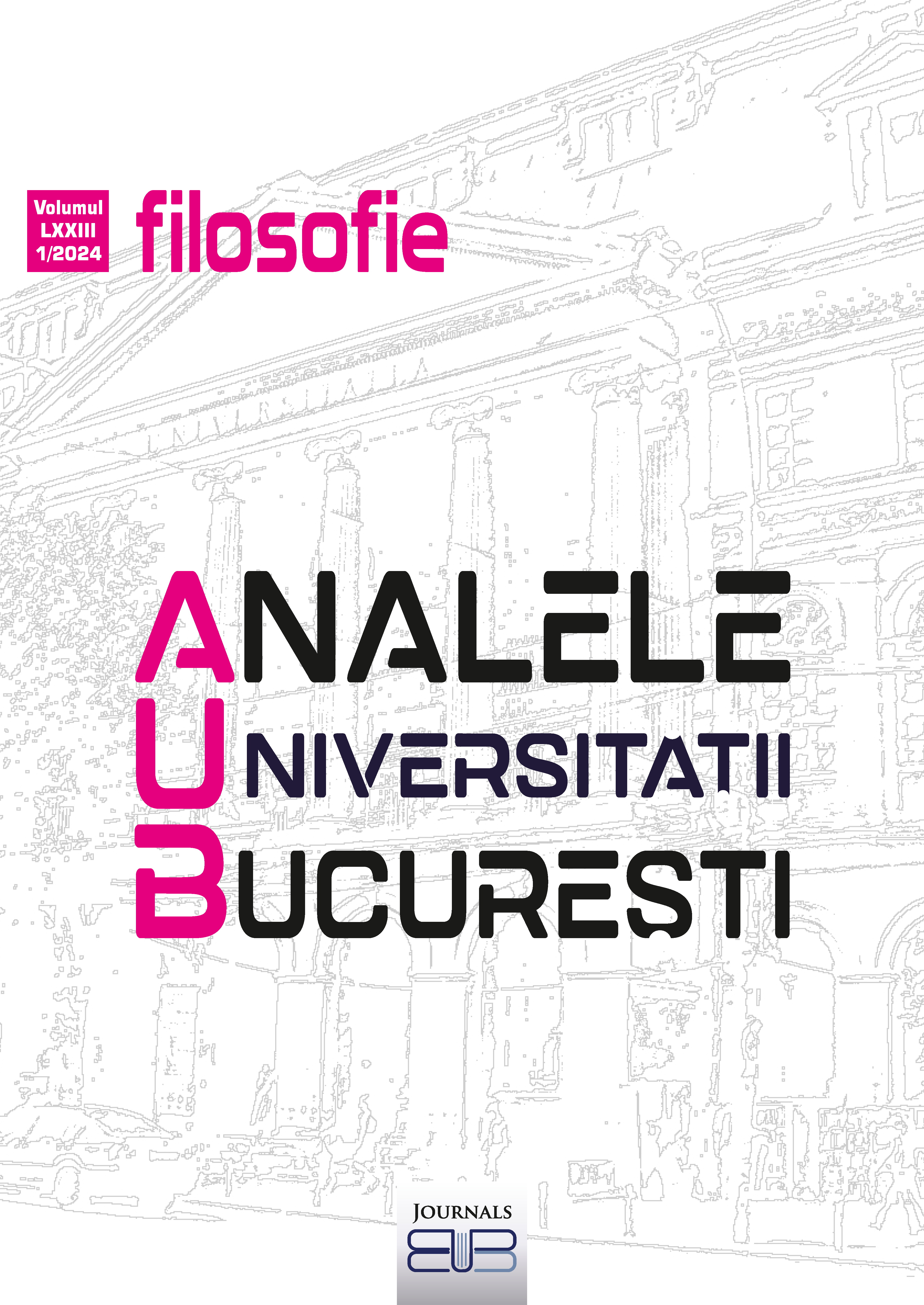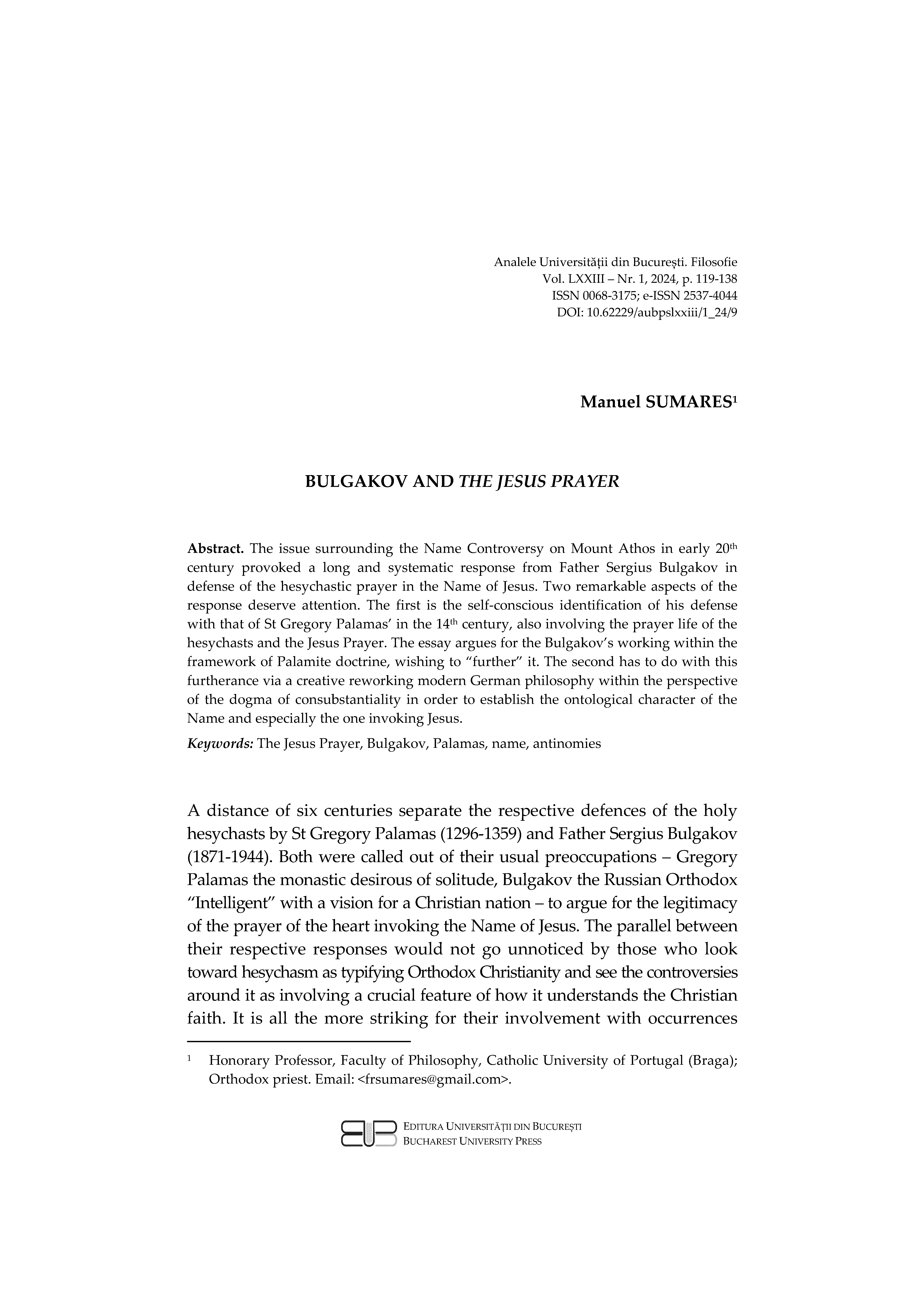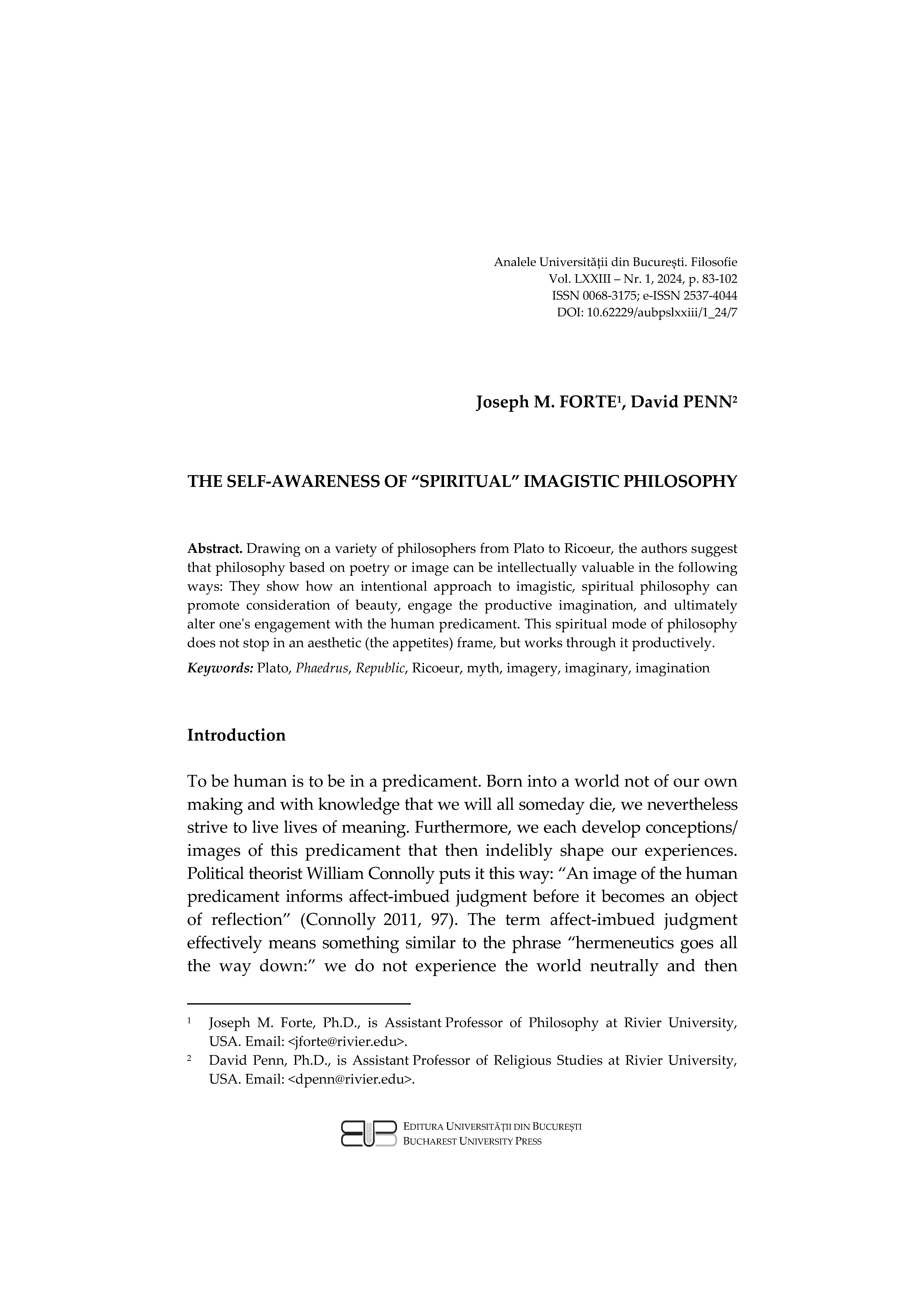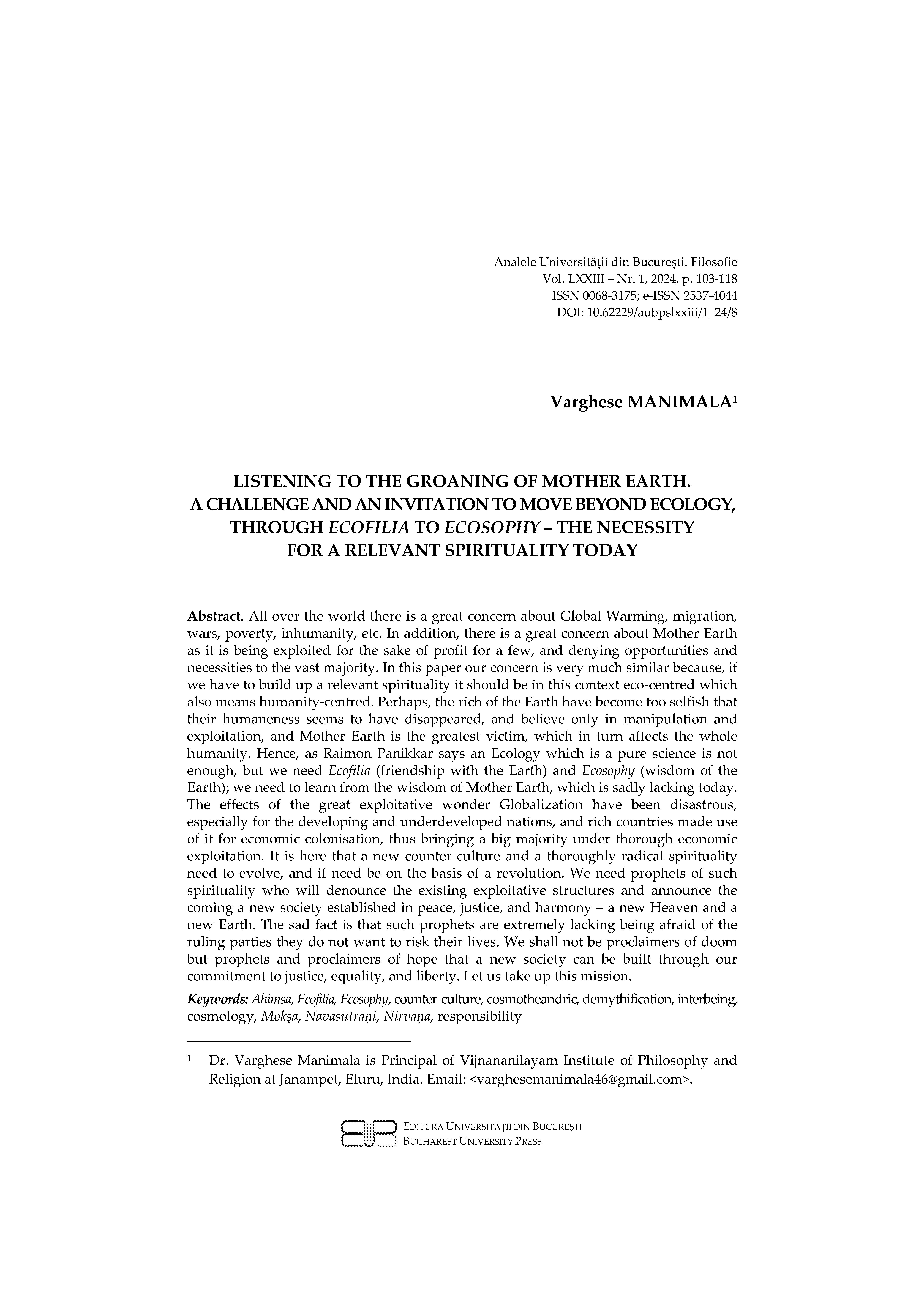Vol. 73 No. 1 (2024): SPECIAL ISSUE: PHILOSOPHY AS A SPIRITUAL PRACTICE Pre- and post-Christian Challenges of Subjectivation, Truth and Knowledge

The journal publishes articles considered of relevance for those interested in the field of philosophy and is addressed both to the Romanian and international philosophical community, with a special accent on East- and Central-European area.
Published:
2025-07-03













